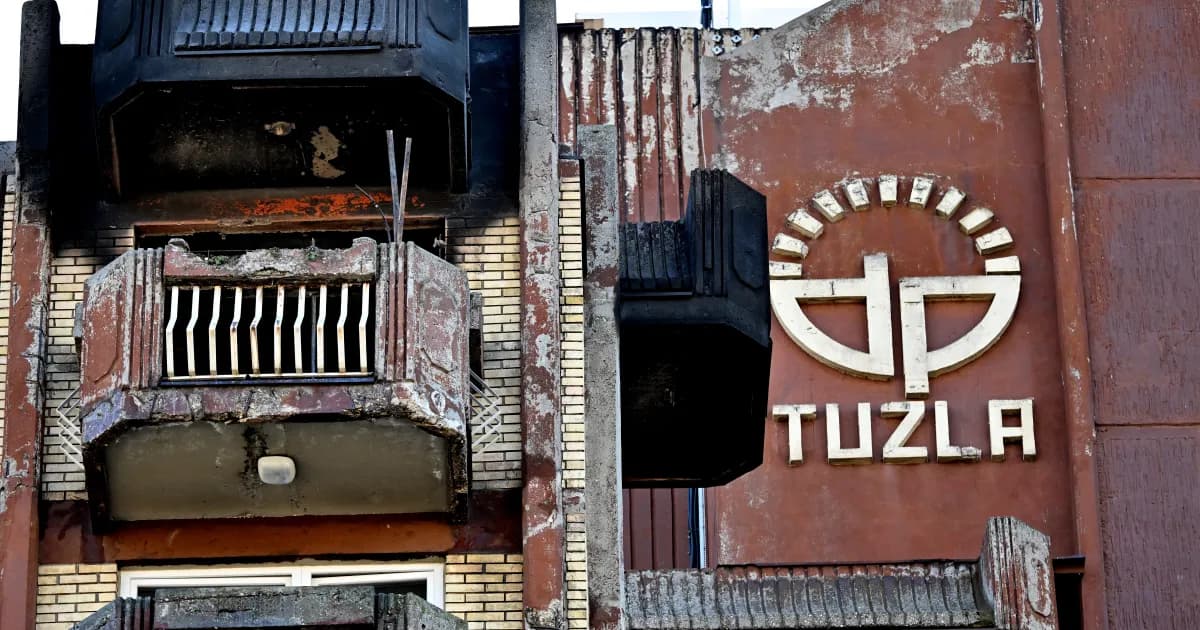We're loading the full news article for you. This includes the article content, images, author information, and related articles.
A devastating fire at a high-rise retirement facility in Tuzla, Bosnia-Herzegovina, has left at least 11 people dead and more than 30 injured, prompting a national tragedy and raising urgent questions about safety standards in care facilities for the elderly.

A catastrophic fire engulfed the upper floor of a retirement home in the northeastern Bosnian city of Tuzla on the night of Tuesday, November 4, 2025, resulting in the deaths of at least 11 residents and injuring more than 30 others. The blaze, which broke out on the seventh floor of the facility at approximately 8:45 PM local time (10:45 PM EAT), triggered a massive emergency response as firefighters battled to control the flames and evacuate vulnerable, bedridden residents.
Bosnian officials confirmed the death toll on Wednesday, November 5, describing the event as a "disaster of enormous proportions." Among the injured were residents, staff, and several first responders, including firefighters and police officers who rushed to the scene. Many of the victims were treated for carbon monoxide poisoning, with several reported to be in critical condition at the Tuzla University Clinical Center.
Eyewitnesses described chaotic scenes as flames and thick smoke billowed from the building. Ruza Kajic, a resident on the third floor, told public broadcaster BHRT she was awakened by a "cracking sound" and saw burning debris falling from above. "I ran out into the hallway. On the upper floors, there are bed-ridden people," she stated, highlighting the particular vulnerability of many of the home's occupants. Bosnian media reported that the higher floors were primarily occupied by elderly residents with mobility issues.
The cause of the fire is not yet known, and an official investigation has been launched by the Prosecutor's Office of Tuzla Canton. Investigators, including criminal police and fire protection inspectors, were on-site Wednesday, but access to the most damaged areas was delayed until the structure was deemed safe. The director of the retirement home, Mirsad Bakalovic, has reportedly resigned, citing moral responsibility for the tragedy.
The incident has cast a harsh spotlight on safety standards in care facilities across Bosnia-Herzegovina. Prime Minister of the Federation of Bosnia and Herzegovina, Nermin Nikšić, who visited Tuzla after the fire, acknowledged that there were prior concerns that the building was "potentially dangerous." He announced that the government would form a team to inspect institutions under its jurisdiction and urged cantonal authorities to do the same to prevent future tragedies. The government has pledged to assist in rebuilding the home and caring for the displaced residents.
While this tragedy occurred thousands of kilometers away, it serves as a stark reminder of the critical importance of stringent fire safety regulations and emergency preparedness in facilities housing vulnerable populations, including in Kenya. The incident in Tuzla, where many victims were immobile, underscores the unique challenges in evacuating elderly and infirm individuals during a crisis. This raises pertinent questions for Kenyan authorities and care home operators regarding the enforcement of safety codes, regular inspections, and staff training for emergency procedures.
The fire in Bosnia highlights a global issue, as similar incidents in other parts of the world have also exposed systemic vulnerabilities in the care sector. For Kenya, as its population ages and the demand for elder care facilities grows, the lessons from Tuzla are profoundly relevant. Ensuring that construction standards, fire suppression systems, and evacuation plans are rigorously implemented and regularly reviewed is paramount to protecting the lives of elderly citizens. The tragedy is a call to action for authorities worldwide to prioritize the safety and well-being of their most vulnerable residents.
Keep the conversation in one place—threads here stay linked to the story and in the forums.
Sign in to start a discussion
Start a conversation about this story and keep it linked here.
Other hot threads
E-sports and Gaming Community in Kenya
Active 9 months ago
The Role of Technology in Modern Agriculture (AgriTech)
Active 9 months ago
Popular Recreational Activities Across Counties
Active 9 months ago
Investing in Youth Sports Development Programs
Active 9 months ago